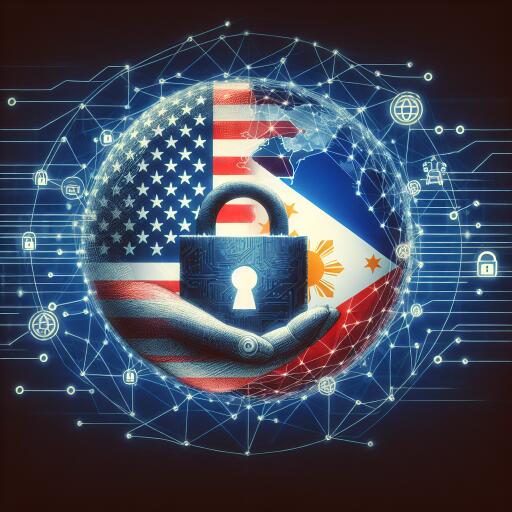US and Philippines Enhance Partnership for a Secure and Reliable ICT Ecosystem
In the rapidly evolving digital landscape, the United States (US) and the Philippines have taken a significant step towards bolstering the security and reliability of Information and Communication Technologies (ICT). This move is aimed at fostering the growth of the digital economy and ensuring stability in cyberspace, with the two nations deeply committed to enhancing bilateral cooperation in cybersecurity.
The commitment was solidified during the United States-Philippines Cyber-Digital Policy Dialogue held in Washington on July 15 and 16. A gathering of senior officials from both countries, the dialogue facilitated a platform for discussing cybersecurity and digital policies critical in maintaining democratic values and digital solidarity across borders.
Nathaniel Fick, the US Ambassador at Large for Cyberspace and Digital Policy, along with Ivan John E. Uy, the Secretary of the Philippines’ Department of Information and Communications Technology (DICT), led the discussions. They emphasized the fundamental role of cybersecurity and digital policy in reinforcing their shared commitment.
“Participants provided updates on their national cyber policies, explored new initiatives for promoting stability in cyberspace, and discussed strengthening cooperation in regional and international fora,” stated Matthew Miller, US Department of State Spokesperson.
The dialogue covered various critical areas including the protection against malicious cyber activities, bolstering regional cybersecurity capacity, and ensuring the security of critical infrastructure. Both nations have shown a strong commitment towards enhancing their bilateral cooperation to strengthen cyber resilience.
Another key focus was on the development and implementation of confidence building measures (CBMs) to mitigate the risks of conflict stemming from ICT use. This includes efforts under the ASEAN Regional Forum Inter-Sessional Meeting on Security of and in the Use of ICTs.
The discussions weren’t limited to cybersecurity. The US and the Philippines also endorsed the adoption of secure fifth-generation (5G) networks and the exploration of Open Radio Access Network (Open RAN) architectures. These efforts underscore a mutual interest in fostering an open, interoperable, and trustworthy digital ecosystem. “The adoption of a national Open RAN policy framework by the Philippines highlights our mutually beneficial cooperation in ensuring a safe and inclusive digital future,” Miller added.
The two countries also emphasize the importance of cloud computing and satellite connectivity in advancing digital inclusivity. Furthermore, they agreed to continue dialogues on cloud policies that enhance system resiliency and data redundancy.
Engagements with US private sector representatives brought to light various aspects of promoting 5G technologies, cybersecurity services, and the development of the digital economy. Topics ranged from data protection, cross-border data flow, digital freedom, and cybersecurity capacity building to fostering public trust in the digital realm.
“The dialogue underscored the role of public-private partnerships in supporting these endeavors, highlighting the critical intersection between technological advancement and responsible internet stewardship,” said Miller.
Looking ahead, both nations eagerly await the United States, Philippines, and Japan Trilateral Cyber and Digital Dialogue in October 2024. This forum is expected to identify further avenues for cooperation, enriching the digital economies of the involved countries and enhancing global cyber and digital security.
As the world becomes increasingly interconnected through digital technologies, the strengthened cooperation between the US and the Philippines serves as a beacon for other nations. It illustrates the importance of international collaboration in safeguarding cyberspace and fostering a globally inclusive digital economy.








